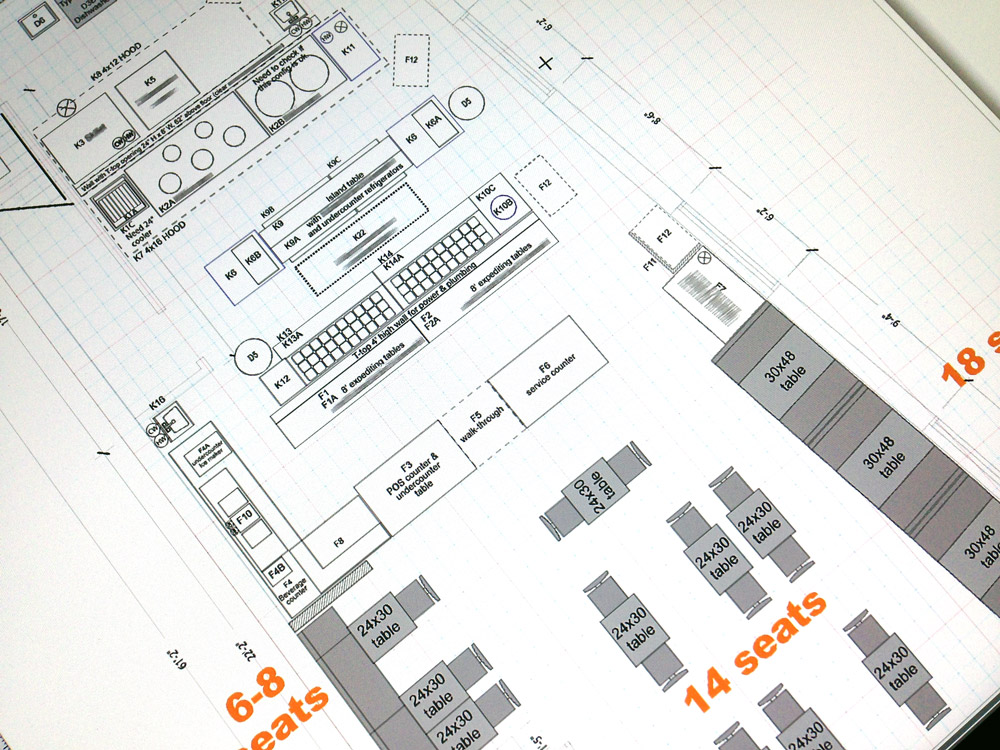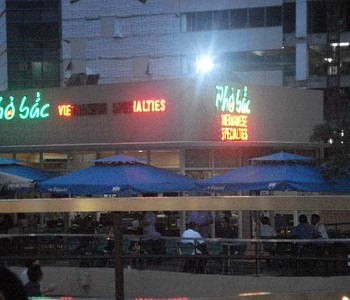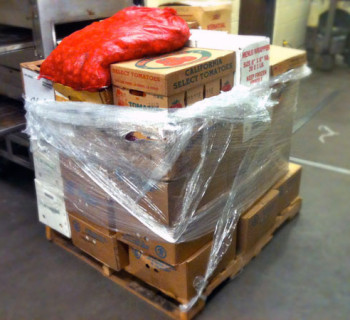Updated 06-25-19. In a previous post, I wrote about Signs That a Pho Restaurant Is in the Process of Failing. It's about a specific restaurant and its troubles. In this post I want to share some signs that a new pho restaurant may not make it and the reasons why. I run into these situations more often than I can count.
You know the saying, "an ounce of prevention is worth a pound of cure" right?
It is absolutely true that, if not designed correctly from the beginning, an already operating pho restaurant requires many "pounds" of cure to fix its problems.
Just as important, or maybe much more important, a soon-to-open pho restaurant only needs "an ounce" of prevention (to plan and design correctly) to ensure they don't have to spend "pounds" of cure later.
I'm a strong advocate of spending just ounces now instead of many pounds later. Unfortunately, many owners don't do this.
 So what are some areas that one should spend your "ounces" on before opening a new pho restaurant? Here are four areas, that if close attention is not paid to, will give an operator the most troubles, and a very low chance to make it.
So what are some areas that one should spend your "ounces" on before opening a new pho restaurant? Here are four areas, that if close attention is not paid to, will give an operator the most troubles, and a very low chance to make it.
1. Didn't Negotiate For A Good Lease.
Once a lease is signed, it becomes a true burden, a fixed cost that you can't get out of. Not easily or cheaply, that is.
Regardless of market condition, food cost, and competition (which are external forces you can't really control), or food quality, menu prices, staff proficiency, operational efficiency, customer service (internal forces that you can control), you are stuck with the lease for a long time.
Many new owners just do not negotiate for the best lease for their restaurant business. The reasons? Any or combination of the following: eagerness to get going, inexperience with commercial/restaurant lease negotiation, lack of confidence, general lack of knowledge, or even fear of a negotiation.
When people approach me about my consulting service after the lease has already been signed, in most cases I know they're already in a tough situation even before opening. They're starting from a deep hole that they need to get out of before seeing the possibilities of any profit. It does not have to be this way. Having negotiated a proper lease for your own unique business needs will get you to profitability sooner, or at all.
What to do: Spend the proper time and effort to learn the intricacies of commercial lease, get professional assistance and representation, and work on your business plan details before starting lease negotiation. Know your strong points, and know your weak points. You want to arm yourself with a lot of information so that you can negotiate with and protect yourself from potential landlords. These are the "ounces" worth spending on before making a 5-year, 10-year or even longer commitment.
2. Didn't Create A Solid Floor Plan.
Many do not realize that the floor plan can represent the single most expensive item they'll have before opening their new pho restaurant.
How, you ask? Well here are a few reasons:
a) The floor plan dictates how much you spend on equipment and installation,
b) It dictates how efficient your operation can hope to achieve (prep process flow, service flow, customer service flow, cross contamination prevention, inventory, storage, etc.),
c) It dictates how you train your staff and how efficient your staff will work every single minute, hour, day, month and year at this location,
d) It dictates how many customers you can physically serve at any given time, thus resulting in what amount of revenue you can really get.
There are many more reasons, but these are the biggies. It's a good idea to pause and really think about what all go into a good floor plan.
What to do: Spend the proper time and effort to define the details of your business operation; a good business plan is a good start. Improve on your own knowledge about all aspects of the business and how they impact your floor plan, or get help. Only after this exercise will you be able to 1) know if an existing restaurant space will meet your needs, or 2) know what to do with the space you just signed up for. So investing some "ounces" of effort upfront for a good floor plan is the cheapest way to go before laying out some serious cash for breaking concrete, purchasing equipment and paying contractors.
Side note: There are some who believe or think that they must have a specific space (meaning have a lease signed first) before they can generate a floor plan. This is a backward approach that will most likely result in less than optimum situation. Successful restaurateurs almost always have a plan first, then look for a space that will meet their plans. If a good location is found, they can always adapt the plan to fit the space. We hear statistics all the time about how many new restaurants fail in the early years. Well this is one of the main reasons.
3. Didn't Hire And Train Well.
Your staff, i.e., your human resources, will be one of the highest cost elements of your restaurant operation. But you know this already, right?
Potential owners sometime contacted me and inquired whether I can help them look for a pho cook. They come from all over: some are in North America, a few are located in different parts of Asia, Eastern Europe and even the Middle East too! I told them I'm not a job placement service and can't help them. More importantly, what they're looking for doesn't exist. I explained to them it's better to hire a good and solid individual to become an employee, then train him or her. That's where I can help. This is true for almost all staff positions.
Invariably many of these owners refused to hire and train; they'd rather hire "experienced" pho cooks and not worry about it. This may be due to the fact that they don't know how to train, don't want to learn how to train, or don't want to spend the time to learn and train. Regardless, as a result, they are constantly operating at the mercy of the hired cook, or in a perpetual cycle of finding a replacement. The better alternative is to know how to make pho yourself, then train your employees to follow your standards. This is what makes a solid business. Granted, foodservice businesses do have higher than average turnover. But this effect can be minimized by an owner having good knowledge about his/her food, then hiring well and training even better.
What to do: Recognize the importance of proper staffing, get a plan going, and give yourself time to learn to hire and train. At the same time, always improve your own knowledge, and/or seek professional assistance. These are some more "ounces" worth spending on while you still have time before grand opening.
4. Didn't Have Discipline.
Yes this whole pho restaurant business is really on you, the owner. Surprise!
In all seriousness, it's strange that sometime we have to remind ourselves that we are actually responsible for our own success or failure.
What does it really boil down to? It's personal discipline.
Without discipline, an owner has no direction, no plan, and no will to learn and carry things out properly and correctly. If you don't have a plan, or have a bad plan, then the chance for getting great results is definitely low. On the other hand, having discipline alone can help get you over many obstacles even without the right experience. For a disciplined owner, it wouldn't be hard to convince him/her of the importance of the 3 preceding items. And once you understand and accept it, you take real action. And that's exactly what you want.
What to do: Before investing too much in your business, invest in yourself first. Spend some serious time to look inward to learn and understand your own self, know what makes you tick, how you work and how you make decision, and what your strengths and weaknesses are. And why the heck do you have to open a pho restaurant now, and is it a good reason. Then decide to have an open mind and learn as much as you can. Know what you don't know. These are also the small "ounces" worth spending on now.
Opening a pho restaurant, and being successful at it for the long term, requires a lot more than just these 4 things. However, without them, it's a high chance that a new pho restaurant will not make it. Those that do make it, are just lucky. And luck will only carry you so far, until as they say, luck runs out.
So give yourself the best chance for success by paying close attention to these factors. They're the small "ounces" you should invest in now so you won't have to spend major "pounds" to fix them later. After that, with a little luck your new pho restaurant will make it for the long term.
Hope you get some good takeaways from this post. Please leave feedback in the comments below.
For help with your pho restaurant, book a one-hour pho restaurant consultation and get your questions answered.



